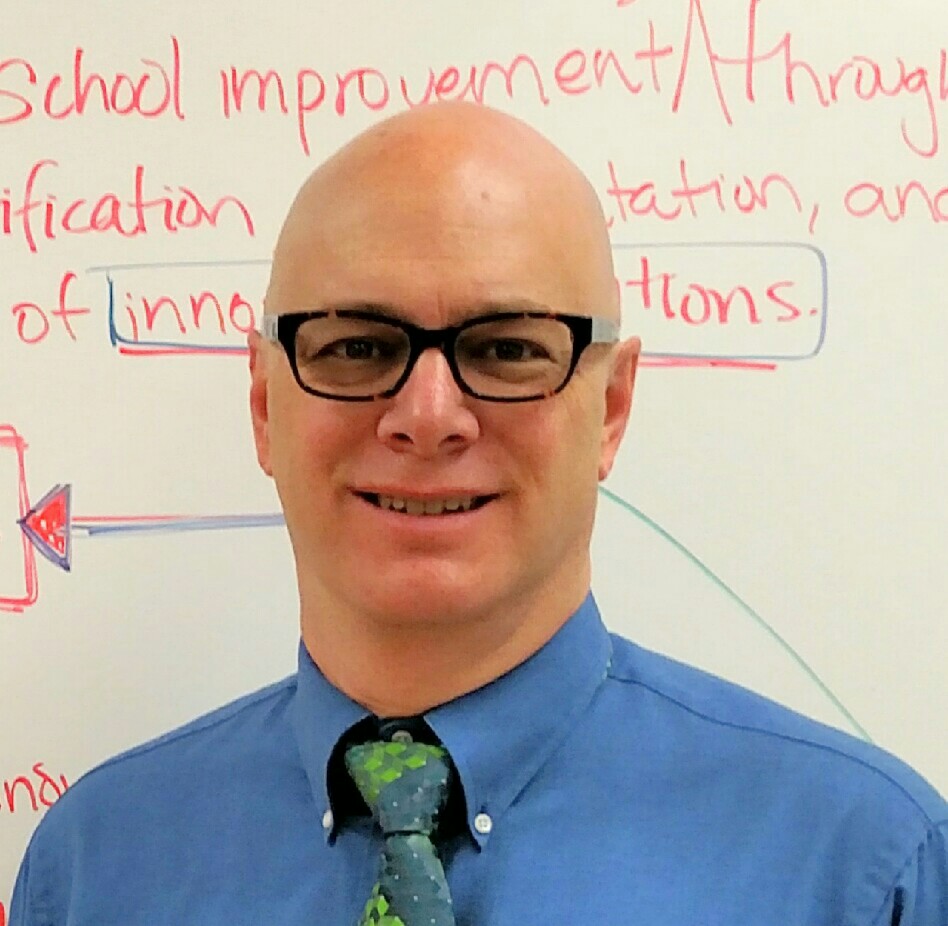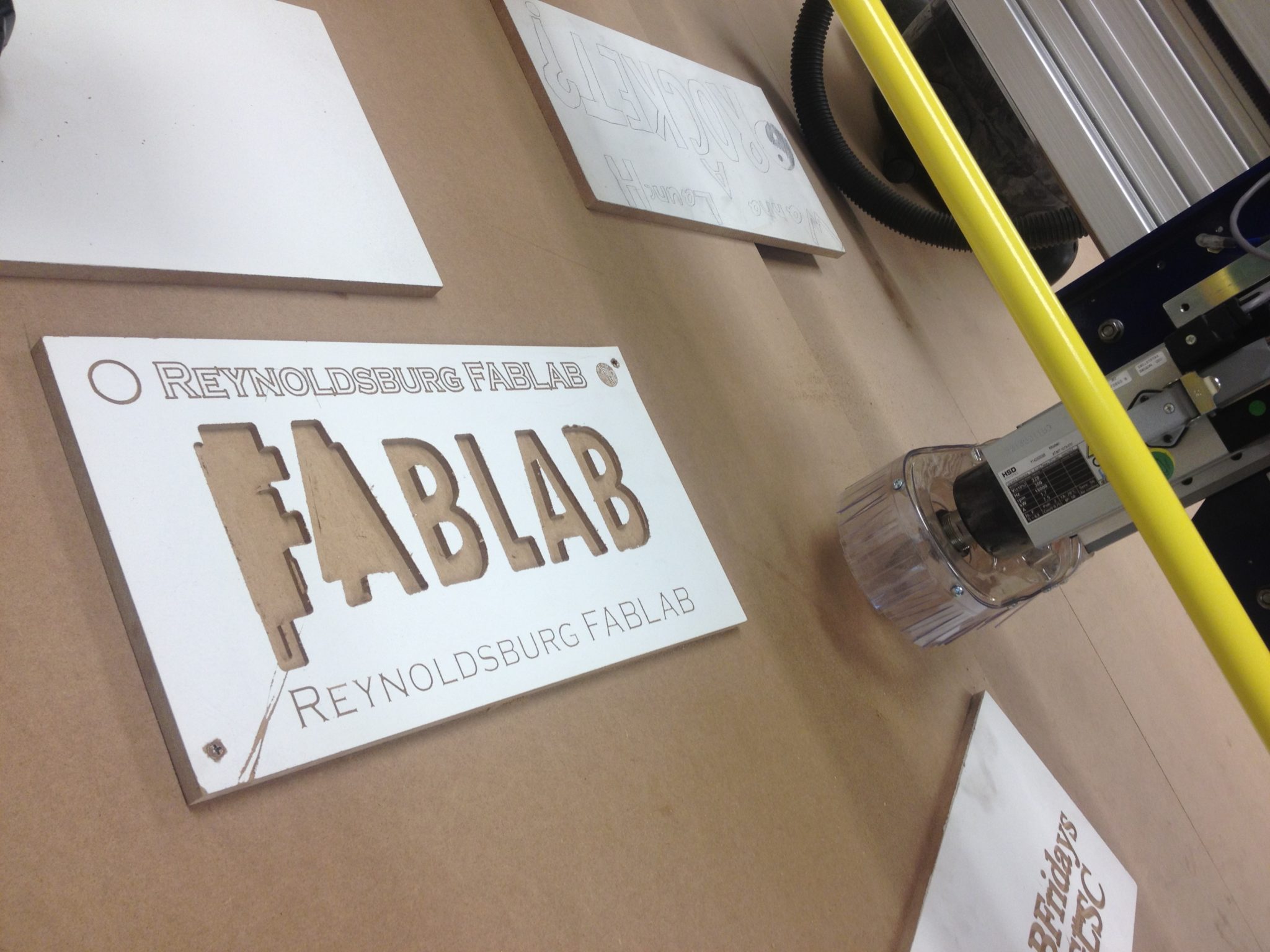Many STEM educators believe that Fab Labs are truly fabulous. The small-scale fabrication laboratories, which are finding their way into more schools, are usually equipped with computer-controlled tools that students can use to make products that solve problems. Fab Labs are part of the growing Maker education movement. To find out more about the movement and the upcoming Central Ohio FabLab Innovations NetworK-12 Summit, we contacted Thomie Timmons, Innovation Coordinator at Reynoldsburg City Schools in Central Ohio, a district that employs Fab Labs:
Q: Tell us about the first Fab Lab of Reynoldsburg City Schools: How and when did it come about, and how it is used today?
 A: In 2013, Marcy Raymond (then-principal of the school district’s eSTEM Academy) and I wrote a proposal that was funded by Battelle and the Ohio STEM Learning Network, with matching funds from Reynoldsburg City Schools. With help from Nick DiGiorgio, then with the MC2 STEM high school of the Cleveland Metropolitan School District, we established the Reynoldsburg Battelle Fab Lab.
A: In 2013, Marcy Raymond (then-principal of the school district’s eSTEM Academy) and I wrote a proposal that was funded by Battelle and the Ohio STEM Learning Network, with matching funds from Reynoldsburg City Schools. With help from Nick DiGiorgio, then with the MC2 STEM high school of the Cleveland Metropolitan School District, we established the Reynoldsburg Battelle Fab Lab.
This lab, located on the Reynoldsburg district’s Summit Road campus, is associated with the MIT Fab Foundation, a global network of Fab Labs in communities and schools. This was the first adventure into Maker Education in Reynoldsburg.
In 2014, Reynoldsburg City Schools was awarded a 21st Century school grant from the state of Ohio. Together with other central Ohio schools, five mobile Fab Labs and two additional static Fab Labs were funded.
As Reynoldsburg City Schools’ mobile Fab Lab was deployed, many of our district schools began to plan what we call Innovation Labs. This has become a K-12 initiative that includes partners such as businesses, colleges and professionals.
The Reynoldsburg Battelle Fab Lab currently serves the community and district by solving problems that are tackled by student interns during the school year. The Fab Lab is also essential to unique coursework such as STEM Art and Project Lead the Way.
The Reynoldsburg Battelle Fab Lab is the sponsor of the East Columbus Maker Meetup, an informal meeting for area Makers. It also has open hours for community use and training two days a week.
The mobile Fab Lab has gone from deploying at three schools to visiting every school in the district as well as attending several community events. The district also has three established MakerSpaces and TinkerSpaces for K-8 and several others in the early implementation and planning stages.
Q: Tell us about the spaces for younger students.
A: At our school called STEM Middle@Baldwin Road Junior High, we have a MakerSpace — The Foundry — where veteran educator Sandy Guinto teaches the Art of Math. This space is a nexus of innovation and often has multiple classes working in the space on different Maker education activities.
This Innovation Lab has spawned other unique spaces in this building such as the SOIL Lab run by Rob Niedermeyer.
Two of our STEM designated elementary schools have TinkerSpaces — the Innovation Station and ICE Lab — that introduce Maker activities in K-4.
All of these Innovation Labs give students hands-on application of what they are learning in class.
Q: How can Fab Labs be integrated into a school’s curriculum? What have you learned along the way from this experience?
A: Key to how we implement education in these spaces is the pedagogy of transdisciplinary, problem-based learning. The tool of implementing this pedagogy is design thinking.
We have found that utilizing design thinking and design challenges creates a common language among disciplines particularly with our use of a design process: imagine, plan, design, improve and share. This process parallels the scientific method or the writing process, and students begin to see connections.
We have also found that there is a difference between knowledge and understanding. These spaces give students practical application of knowledge, which in turn becomes understanding. We believe that knowledge can be fleeting without these experiences. When a student understands how the knowledge is used, the student retains that knowledge.
Key is the teacher’s ability to have an exceptional grasp of the content standards and build experiences that teach those standards. This is not something extra. This is a key teaching process that also builds other skills desired by industry.
Q: How has the Maker movement grown in Reynoldsburg and central Ohio, and what impact is it having on students and teachers — and education in general?
A: In Reynoldsburg, we continue to grow these spaces because of their positive impact on students. The state of Ohio grant was a catalyst that has expanded this work going forward.
We initiated the Central Ohio Fab Lab Innovations NetworK-12 as a support mechanism based on the collaborative open source work of the Maker Movement. This year, educators and Makers also gathered for MakerX, The Columbus Maker Expo, in April. There were more than 50 exhibitors, including students, and 1,000 tickets were sold for the event.
In terms of the students, the change can be summed up by the questions they now ask in class. Previously, by far, the only question students reliably asked was, “What does it take to get an A?” Now teachers “complain” that students are asking too many questions. Students have an increased curiosity and intimate understanding that the knowledge they acquire can be applied to solve problems.
Q: What can participants expect to see, learn and do during the Fab Lab summit June 6-7?
A: These two days have evolved over time, but this is what seems to work: Day One, we ask the participants who are experts to help teachers new to Maker education with tools and programs often found in these spaces. Because of this, our body of experts is growing, as is the breadth of experience we can offer. Day Two, we run an Ed Camp.
At the conclusion of Day One, we brainstorm topics that participants want to explore. These topics become self-selected sessions throughout Day Two for participants to engage in. Teacher feedback from the resources and connections made are extremely positive. In fact, many of the participants stay in contact throughout the following school year to support and provide feedback to one another’s work.
Q: Who would benefit from attending the summit?
A: We have a wide range of participants representing various disciplines and skill levels. Teachers don’t need any experience. However, even the most experienced educators benefit from this event.
Q: How can readers get more information on the summit and the Maker movement in general?
A: They can contact me directly, [email protected]., and they can attend the Central Ohio FabLab Innovations NetworK-12 Summit. Dates and times are June 6 (8 a.m.-4 p.m., with a meetup at 5 p.m.), and June 7 (8:30 a.m.-4 p.m.) at Reynoldsburg City Schools’ Summit Campus, 8579 Summit Rd.
Registration is $10 for two days of personal development. Tickets can be purchased at https://tinyurl.com/ycwtlfpt (full URL: https://www.eventbrite.com/e/central-ohio-fablab-network-12-summer-summit-tickets-45561607996)
Other resources for Maker education include MakerEd.org; Fab Foundation SCOPES-DF project (https://www.scopesdf.org/); and Stanford University’s d.school K12 Lab (https://dschool.stanford.edu/programs/k12-lab-network).
Many more resources will be available at the summit.
